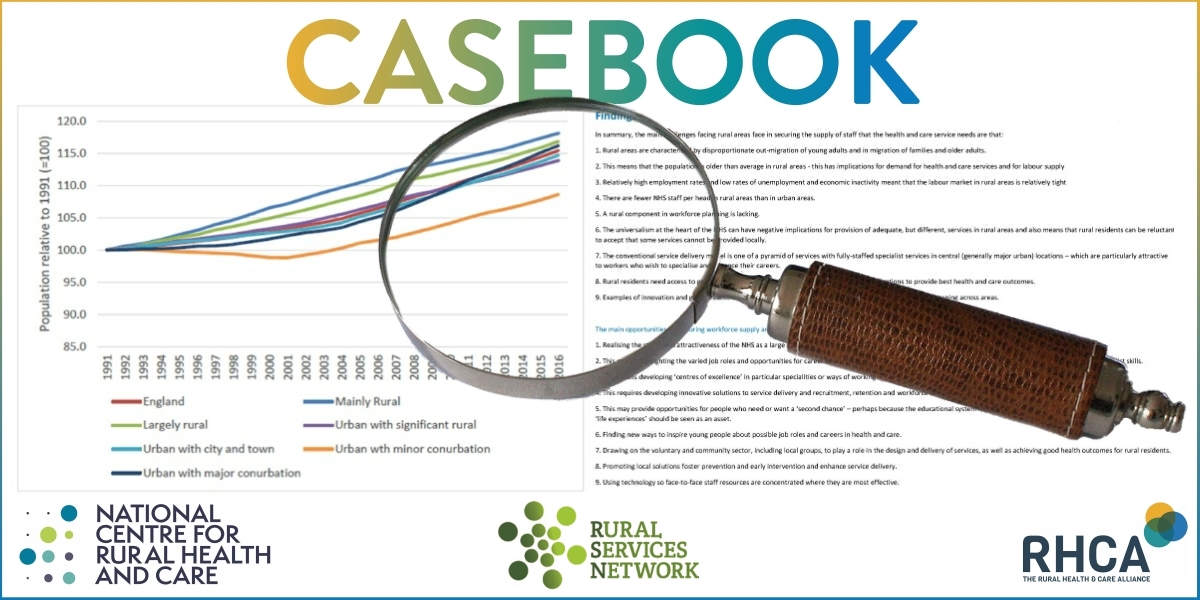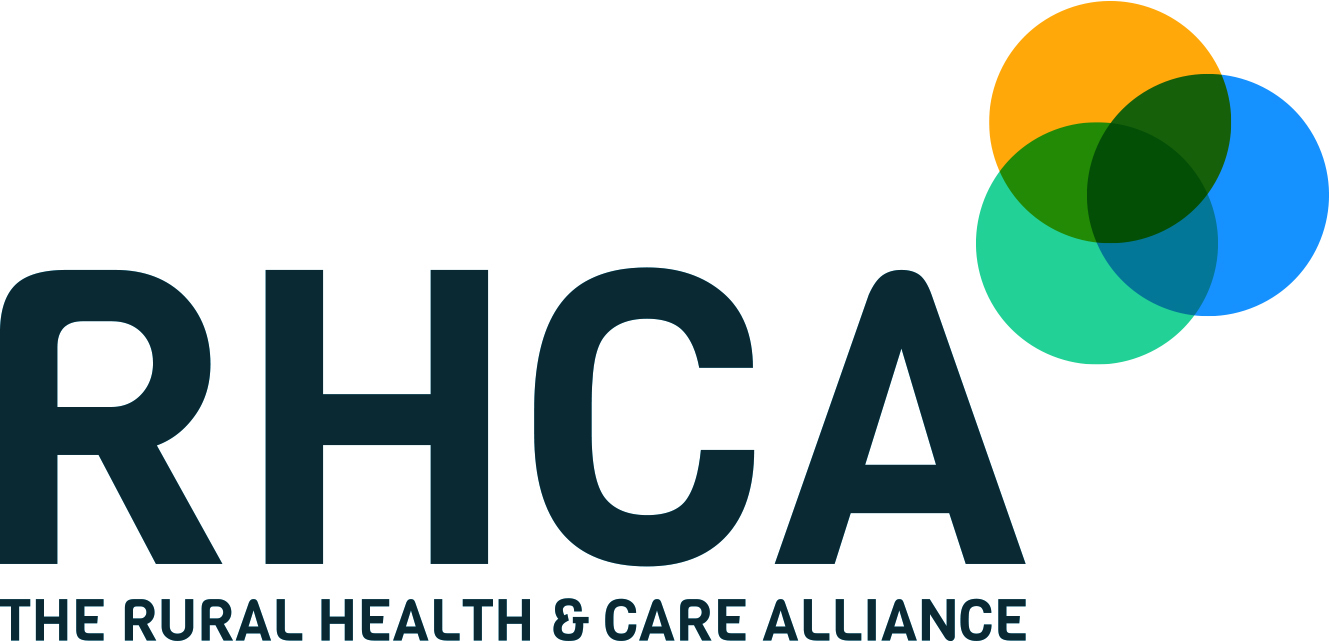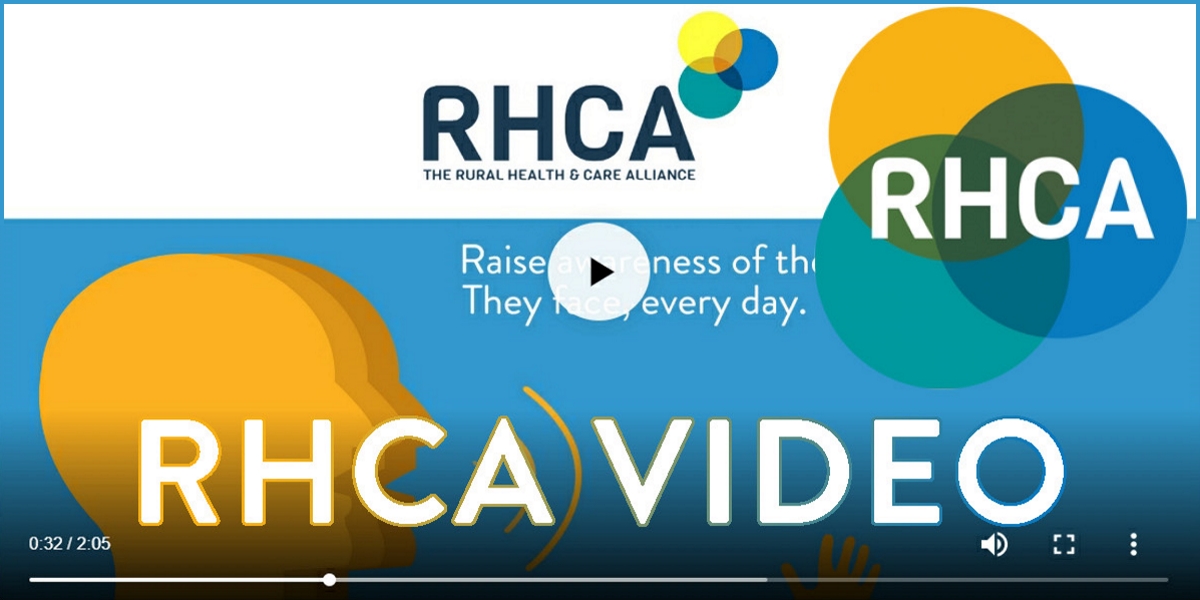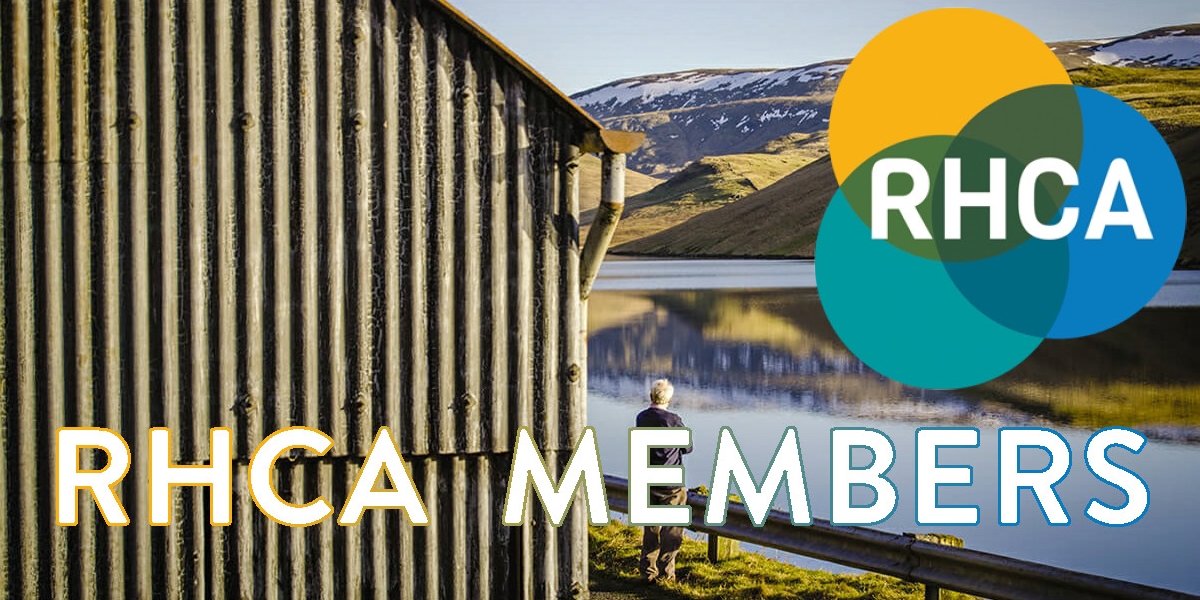T: 01822 851370 E: [email protected]
Visit RSN Survey about life in rural England to find out more.
May Edition of Casebook from the Rural Health and Care Alliance
 May 2025 Edition
May 2025 Edition
Welcome to this month's edition of Casebook in which we focus on the importance of funding and social care reform; highlight a multimillion-pound boost for rural mental health; share best practice in community health engagement from Community Catalysts; shine a light on the import role housing plays in health; and promote an upcoming University of Central Lancashire conference to inspire change in rural healthcare. Read on…
Funding Reform Must Deliver for Rural Communities
 The latest Housing, Communities and Local Government Committee session held on 7th May 2025, placed funding and sustainability of local government finance under close examination.
The latest Housing, Communities and Local Government Committee session held on 7th May 2025, placed funding and sustainability of local government finance under close examination.
Minister of State for Local Government and English Devolution, Jim McMahon MP, alongside Nico Heslop, Director of Local Government Finance, provided evidence on the challenges faced by councils and the government’s approach to financial sustainability.
Acknowledging Pressures but Committing to Reform
Minister McMahon openly recognised the financial pressures facing local authorities, including rising costs in adult social care, children’s services, SEND transport, and temporary accommodation. He acknowledged that these pressures have led to a crisis in local government finance and that neighbourhood services—critical to residents’ quality of life - have suffered as a result.
The Government’s response is focused on building a sustainable financial footing through multi-year settlements and a fundamental review of the needs and resources assessment. This review will consider factors including deprivation, rural service delivery costs, and daytime population increases in urban centres.
Rural Considerations in Funding Reform
Importantly for rural communities, the Minister recognised the need for deprivation assessments to capture hidden challenges in less densely populated areas. He stated:
"With all indices of multiple deprivation, I suppose the only direct instruction politically is that we need to go down to the smallest possible unit to make sure that we pick up deprivation wherever it exists in the country. We do not want to have such a high level of assessment of deprivation that we pick up big clusters, but miss pockets of deprivation that might exist in coastal or rural communities, where deprivation is to be found but the system might not pick it up. The indices that we go on in the super output areas are population sizes of about 1,000. That should pick up the deprivation wherever it exists."
He also directly acknowledged the higher costs associated with delivering services in rural areas, noting:
"Rural councils will say that on an evidence-based assessment it costs more to deliver public services in their areas because of the distance needed to travel from one appointment to another or to empty a bin from one address to the other. Where the evidence base supports the argument being made, we are keen to make sure that the argument is accommodated."
While these commitments are positive, they sit alongside a wider focus on addressing significant urban deprivation, and the balance of future funding allocations remains a critical area for scrutiny.
Financial Support and Reform Timeline
The Government confirmed that the current £69 billion local government settlement includes £5 billion in new money, but rising demand means this remains a bridging measure until a new multi-year settlement is introduced.
A consultation on the funding reform is scheduled to open in mid-June 2025, following the forthcoming Spending Review. Full settlement proposals are expected to be outlined in the autumn, with the aim of ensuring councils are placed on a more sustainable financial footing by the end of this Parliament.
SEND and Rural Transport Challenges
The session also covered the growing pressures on SEND transport budgets - an issue of particular concern for rural councils where long-distance travel is often required to ensure children can access education. The Minister acknowledged these specific pressures but admitted that rebuilding mainstream provision and reducing these costs will take time.
Next Steps
The Rural Services Network will closely monitor the upcoming consultation and spending review to ensure that the specific challenges facing rural councils - such as service delivery costs and hidden deprivation - are fully addressed in future funding reforms.
We encourage our members to share their views once the consultation opens in June. Your experiences and evidence will be vital in ensuring the rural voice is heard.
Adult Social Care Reform: The Cost of Inaction
 The Health and Social Care Committee has delivered a stark warning to Government: without fully understanding and addressing the true cost of inaction, efforts to reform England’s social care system risk inevitable failure.
The Health and Social Care Committee has delivered a stark warning to Government: without fully understanding and addressing the true cost of inaction, efforts to reform England’s social care system risk inevitable failure.
In its latest report, Adult Social Care Reform: The Cost of Inaction, the cross-party Committee emphasises that continuing to do nothing is an active decision—one that is no longer tenable. MPs highlight that a lack of robust data and a failure to measure the financial and human cost of the current broken system are major barriers to achieving meaningful reform.
Key findings from the Committee include:
- The adult social care system costs the Government and taxpayers £32 billion a year but still fails to meet the needs of millions.
- Over 3.5 million people are living without the care they require, with unpaid carers filling the gap—providing care valued at a staggering £184 billion annually, equivalent to a second NHS.
- The strain on local authority budgets is crowding out other vital services, with adult social care consuming an increasing share of council spending, often at the expense of libraries, youth services, and road maintenance.
The Committee calls for the Government to urgently commission research that quantifies the full economic and social cost of inaction, including the impact of delayed hospital discharges on the NHS and the growing levels of unmet care needs.
The report estimates that every £1 invested in social care returns £1.75 to the wider economy, with a £1 billion investment creating 50,000 jobs. Despite this, the social care workforce remains under-resourced, and opportunities for economic growth in these areas are being missed.
Layla Moran MP, Chair of the Health and Social Care Committee, commented:
"We are living with a broken social care system. It harms those who need care, the people delivering it, the NHS, local government, and the economy. Yet, the social care sector also offers enormous potential to contribute to economic growth and employment. Reform is no longer a choice—it is a necessity".
The Rural Services Network supports the Committee’s call for a fundamental change in how social care is viewed and valued. This is not simply as a cost to the public purse but as a vital enabler of healthier communities, a stronger economy, and more resilient public services.
Read the full report here
Multi-Million Pound Boost for Rural Mental Health Research
 The University of Worcester has been awarded more than £2.2 million for a programme of research to investigate mental health inequalities across Herefordshire and Worcestershire.
The University of Worcester has been awarded more than £2.2 million for a programme of research to investigate mental health inequalities across Herefordshire and Worcestershire.
The funding, from the National Institute for Health and Care Research (NIHR) Mental Health Research Leader Award will enable the University to establish a new Rural Mental Health Research Unit.
Research in the Unit will be developed to understand the risks of poor mental health in rural communities, to develop new approaches to prevent mental health difficulties and to identify earlier signs of mental health difficulties.
The 5-year programme will fund three new posts, including a Professor of Rural Mental Health, an Associate Professor of Suicide Prevention and a Research Fellow as well as two PhD students each year.
Professor David Green CBE DL, Vice Chancellor and Chief Executive of the University of Worcester, said:
“I am delighted that the National Institute for Health and Care Research has awarded this major grant to establish the new Rural Mental Health Research Unit at the University of Worcester.”
He continued:
“The research that this unit will conduct will help many thousands of people living in rural communities in the years ahead. This is a really positive development for the community, the NHS and the University. We are very grateful to the NIHR for this major award.”
Serious mental illnesses like schizophrenia, bipolar disorder, and major depression can make it hard for people to live their daily lives, and they’re becoming more common, especially in rural areas with high levels of poverty.
Mental illnesses in rural areas can go unnoticed because of stigma, social isolation, and barriers to accessing services. People in these settings often travel long distances to reach services and are less likely to be able to access them digitally.
Professor Eleanor Bradley is Director of Research in the University’s College of Health and Science, and Principal Investigator on the programme.
She said:
“The reason we need to do this research is to learn more about the experiences of people living across our rural communities, through new research designed to reflect their daily lives and experiences of mental ill-health. This will enable us to develop our services locally, whilst understanding more about rurality as a risk to people’s mental health.”
Professor Bradley added:
“We’ll be working very closely with our voluntary and community sectors because patient and public involvement is central to what we’re doing. This is about offering research to people who’ve previously been underserved by research.”
It’s expected that the research carried out here could have huge implications for the way mental health services are delivered in rural settings much more widely.
Professor Bradley said:
“The research will be designed with transferability in mind, and so we’d expect to be able to share our learnings with other regions and also learn from them too.”
Professor Sally Moyle, Pro Vice Chancellor Health & Science, said:
“This is a fantastic opportunity for our research colleagues to work across many health, voluntary, and independent sectors, bringing together a wealth of expertise to drive improvement for the region.”
Professor John-Paul Wilson, Pro Vice Chancellor, Research, at the University of Worcester and Joint Principal Investigator, said: “This programme is of great importance to the University and the wider community. It will significantly extend our already excellent research into serious mental illness.”
He added:
“Crucially, it’s designed to change people’s lives for the better by preventing serious mental illness, identifying signs of serious mental illness earlier, helping people get quicker access to support, and then looking at the support they need after diagnosis.”
The programme will be delivered in partnership with the University of Birmingham’s Institute for Mental Health and regional health bodies, including the Herefordshire and Worcestershire Integrated Care Board, the Herefordshire and Worcestershire Health and Care NHS Trust, Public Health Teams, and Primary Care.
Connecting Communities Through Small Good Stuff
 Community Catalysts is a social enterprise that works in partnership to make sure that people can be part of strong, inclusive, communities with real opportunities to connect, create and contribute.
Community Catalysts is a social enterprise that works in partnership to make sure that people can be part of strong, inclusive, communities with real opportunities to connect, create and contribute.
Since 2009, they have worked with councils, health bodies, and community groups to support people to run small enterprises and community businesses that offer highly personalised care and support.
Small Good Stuff is a directory of small, local care and support services. It connects people who are seeking care and support in local areas with others who can help.
 |
Big Developments to Small Good Stuff
We’re pleased to share some exciting news from Community Catalysts about recent improvements to their Small Good Stuff website – a free directory designed to connect people who need care or support with local, independent providers.
As demand grows for bespoke, flexible, and person-centred care options, Small Good Stuff has seen a surge in both users and providers. Recognising this, Community Catalysts have made a few enhancements to the platform, including:
 |
Refined and Simple Search: Users can now filter results to find support and activities based on specific times and dates, making it easier to locate suitable services. |
 |
Availability Calendars: Community micro-enterprises can add details about their activities, including the days and times they operate, to an availability calendar on their profile. This feature helps individuals find the right support that fits their schedules. |
 |
Service Reviews: The platform now allows people to read and leave reviews (ratings and comments) of support and services, helping others to make informed decisions about the care they choose. |
These developments are supported by a commitment to promoting real choice for people who need care and support, particularly in rural and remote areas where options are often limited.
Strengthening Communities Through Enterprise
Community Catalysts’ work is vital in building stronger, more resilient rural communities. Their approach not only helps people find the personalised support they need but also supports local enterprise, enabling individuals to build small businesses that are truly rooted in their communities. This model promotes economic sustainability, social connection, and independence – key ingredients for rural vitality.
We warmly welcome the continued growth of Small Good Stuff and congratulate Community Catalysts on these important developments. We encourage members to explore how Small Good Stuff can benefit their communities – whether by helping people find local support or by encouraging local people to start offering their own services.
For more information, visit: https://www.communitycatalysts.co.uk/2025/04/03/big-developments-to-small-good-stuff/
Inspiring Change in Rural Healthcare
 The National Centre for Remote and Rural Medicine (NCRRM) is once again preparing to welcome healthcare professionals from across the UK and beyond for its annual conference.
The National Centre for Remote and Rural Medicine (NCRRM) is once again preparing to welcome healthcare professionals from across the UK and beyond for its annual conference.
Taking place on Wednesday 4 and Thursday 5 June 2025 at the North Lakes Hotel and Spa in Penrith, this year’s event promises to be another inspiring gathering. With the theme “Changing Practice, One Thought at a Time,” the conference will explore how small shifts in thinking can lead to big changes in the way healthcare is delivered in remote and rural settings.
Building on the success of previous years, the 2025 conference will feature an exciting programme of keynote speakers, workshops, and panel discussions. Attendees will hear from practitioners who have delivered care in some of the world’s most challenging environments, and will explore topics such as clinical courage, wilderness medicine, and lessons learned from working in the remotest locations.
The conference offers far more than just a learning opportunity. It’s a chance to connect, share expertise, and build networks with like-minded professionals who are passionate about rural healthcare. Already, delegates are set to travel from as far afield as Australia and New Zealand, demonstrating the global relevance of the issues under discussion.
Delegates will be encouraged to think about how they can integrate compassion, mental wellbeing, and holistic approaches into their practice — aspects that are often vital, but sometimes overlooked, in rural and remote healthcare delivery
Students are also encouraged to take part, with two free places available through a competitive application process. Last year’s strong interest from students highlights the growing enthusiasm for careers in rural medicine, a promising sign for the future of healthcare provision in more isolated areas.
The conference is organised by the Remote and Rural Team at the University of Central Lancashire (UCLan).
For more information or to book your place, visit the dedicated web page or contact the team at [email protected]
Housing Crisis is a Health Crisis

A powerful new report from Crisis, supported by Health Equals, is shining a spotlight on how unaffordable private rents are driving people into poor health and homelessness.
Titled “Now I have my flat, my health is much more stable,” the report shows how soaring private rental costs across the country are leaving people—particularly those on low incomes—unable to afford safe, stable homes.
The research, led by Aiden Greenall at Crisis, includes a powerful interactive map showing that just 2.7% of properties listed for private rent are affordable on Local Housing Allowance (LHA) rates. The average shortfall in rent is staggering: £337 per month for a one-bedroom property, £326 for a two-bedroom, and £486 for a three-bedroom.
This gap between incomes and housing costs is forcing many into poor quality housing or temporary accommodation—conditions that the report links directly to increased stress, illness, and long-term health inequalities. In England, more than 164,000 children are now living in temporary accommodation, often in hotel rooms without access to basic facilities. At the same time, 1.8 million children are growing up in overcrowded homes, where cramped conditions put them at higher risk of respiratory illness and disrupted schooling.
The report's findings reinforce what we in rural communities have long known: that without genuinely affordable housing, the foundations of health and wellbeing begin to crumble.
Crisis is calling on the Government to raise LHA rates, invest in social housing, and better regulate the private rented sector to protect tenants. For rural areas, where housing affordability is a persistent challenge, these changes are not just welcome—they are essential.
Read the report in full HERE. |
Find out more about Health Equals HERE. |
We’d love to hear from you - share what you’re proud of
If you have something, you would like us to feature in a future edition, please let us know by clicking here to send us an email.
Spread the word
If you know of other organisations that you think would benefit from joining the Rural Health & Care Alliance, please click here to email us and let us know.
RURAL SERVICES NETWORK
Up to date news on Health and Care
The Rural Services Network provides a useful source of themed news content and data. Check out the latest news on Rural Access to Health and Care Services and Vulnerability, where you’ll find articles on a diverse range of rural issues affecting rural communities.
Latest from RSN Member Insights
RSN Member Insights is the place to discover the statistics that define communities within our membership. It is regularly updated with new analyses, and these will be highlighted in the 'What's New' section of the RSN's Weekly Rural Bulletin. The Rural Bulletin also provides a selection of the most rurally topical news items, so do subscribe and encourage your colleagues to subscribe to what is an invaluable weekly periodical.
| The Rural Health & Care Alliance is a membership organisation administered by the Rural Services Network on behalf of the National Centre for Rural Health & Care. Explore the RHCA service below: |
 |
 |
 |
 |
 |
 |
 |
 |
 |
 |



